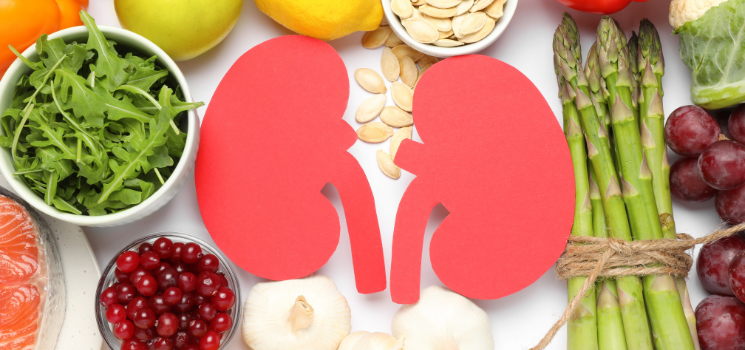If you or a loved one has received a diagnosis of chronic kidney disease (CKD), it is crucial to understand that it is not the end of the road. Dealing with CKD requires proactive measures, and one crucial aspect is prioritising proper nutrition. This involves tailoring dietary choices based on factors such as body size, activity level, CKD severity, and any accompanying medical conditions.
Meeting caloric needs
Malnutrition is a common concern for individuals with CKD due to factors such as reduced appetite and side effects of medication. Ensuring you get enough calories is vital for sustaining daily activities. Given the complexity of calculating calorie requirements, especially for individuals with CKD and concurrent conditions like diabetes, consulting with a dietician is encouraged to create a personalised diet plan that addresses energy requirements while managing specific health concerns.
Protein intake
For individuals with CKD not undergoing dialysis, restricting protein intake is crucial as the kidneys gradually lose their ability to eliminate waste products from protein metabolism. Reducing protein intake helps preserve kidney function, preventing symptoms like nausea and loss of appetite. In advanced CKD, doctors may prescribe low protein diets, supplemented with ketoanalogue.
Low sodium diet
Excessive sodium intake can elevate blood pressure and harm the kidneys over time. Individuals with CKD should aim to limit salt intake to less than 5g (1 teaspoon) per day, avoiding processed foods, canned items, and high-sodium seasonings.
Balancing potassium intake
Maintaining the right amount of potassium is crucial for nerve, muscle, and heart function. In CKD, where excess potassium is not efficiently removed by the kidneys, an accumulation in the blood can lead to an irregular heartbeat and cardiac arrest. Individuals with CKD should avoid high-potassium foods to manage this risk.
Managing phosphorus levels
CKD can lead to imbalances between calcium and phosphorus, causing complications such as brittle bones and deposits in vessels and soft tissues. Foods high in phosphorus, such as dairy products and nuts, should be avoided. Some individuals may be prescribed phosphate binders with meals by their doctors.
Regulating fluid intake
As kidney function declines, advanced CKD patients may need to restrict daily fluid intake to prevent fluid overload due to reduced urine production. This includes monitoring not only water but also fluid intake from beverages and food items. Doctors will provide guidance on the necessary fluid restrictions.
Seeking personalised guidance
For personalised guidance specific to kidney health, scheduling a consultation with a nephrologist is recommended. You may book an appointment with our nephrologist, Dr Wong Weng Kin, via our VPC portal. Alternatively, you can reach us by calling us at 6322 6333, or via WhatsApp at 9655 2101.






